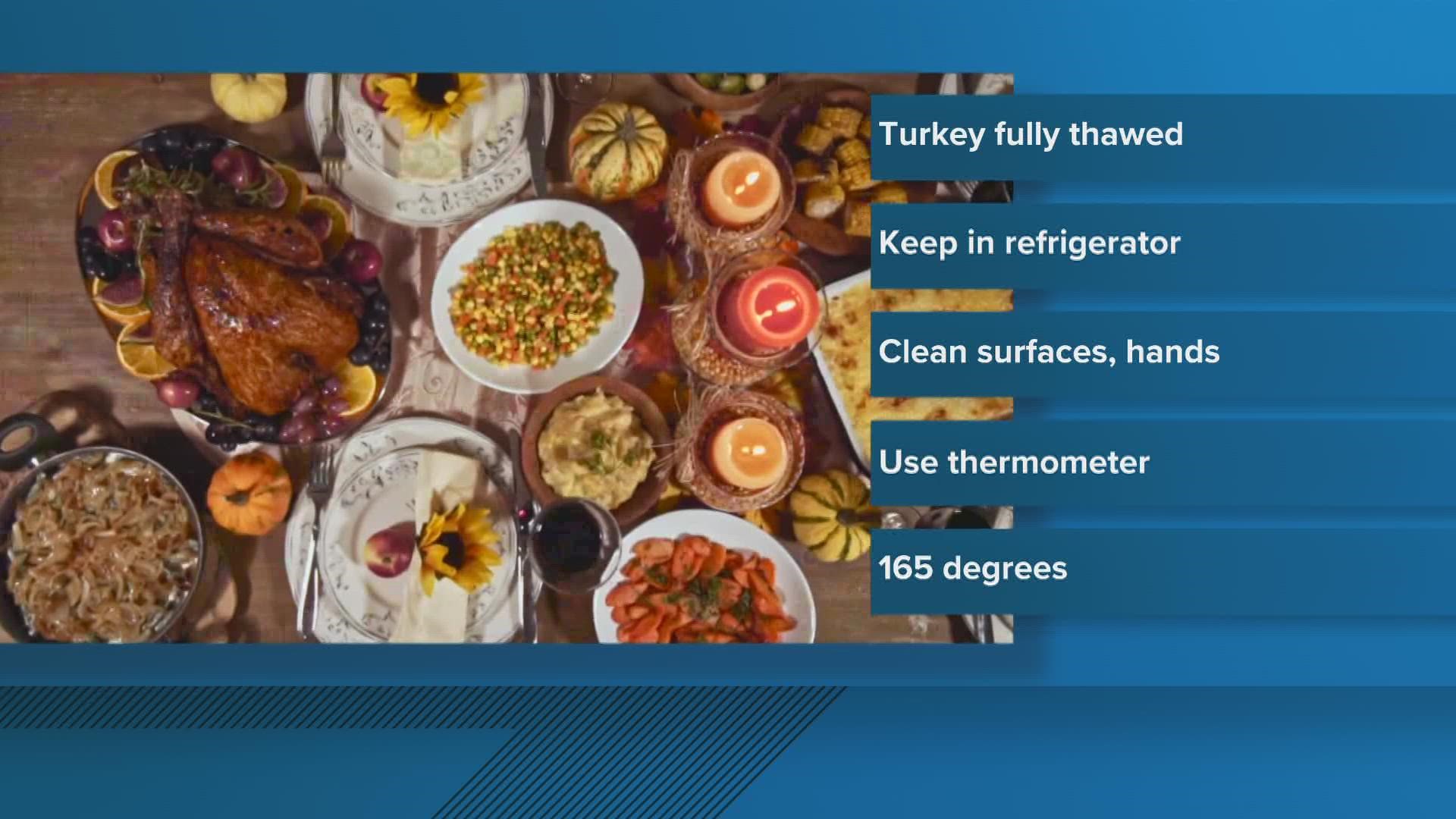MAINE, USA — Thanksgiving is a holiday for the food-lovers. Whether your favorite part is the green bean casserole or sweet potatoes or stuffing, there's usually a little something for everybody.
But nothing will ruin your holiday faster than getting sick from food poisoning, and it can happen more easily than you might think. Food safety has a lot to do with proper sanitation and preparation.
Jason Bolton, a food safety specialist with the University of Maine Cooperative Extension, shared steps you can take to keep bacteria from growing and spreading.
The first step is to always wash your hands with warm water and soap.
Bolton said to keep your raw items separate from the cooked items. The same goes for utensils. This helps you avoid cross-contamination.
Lastly, he said to make sure you wash those utensils and any surfaces in your kitchen that make contact with raw foods, like an uncooked turkey.
"You don't have to make it like a hospital, but at the same time hot water and soap goes a really long way. Then if you have a good kitchen food contact surface sanitizer like a bleach solution or something like that that's appropriately made if you're buying it from the store. Not a bathroom cleaner, but something for your kitchen," Bolton said.
If you'd like to make your own food contact surface sanitizer, Bolton said they have instructions listed on the UMaine Extension website.
Bolton also talked about proper steps to take when it comes to preparing to cook your turkey.
He said you should first make sure its fully thawed before cooking. An instant thermometer will help you determine the turkey is fully thawed, not just at the surface level. Bolton said it takes much longer to cook a turkey that isn't fully thawed.
If you need to thaw out your turkey, Bolton said it's important to be sanitary about it. He recommends placing it in the refrigerator or in a food-grade container with cold water that can be switched out every so often. He does not recommend leaving the turkey out on your counter or using something like a bathtub to thaw it. He added that it's important to also leave the turkey in all of its original packaging.
Bolton said to clean any surfaces the turkey comes in contact with, including your hands and utensils.
The turkey should reach a temperature of 165 degrees to be fully cooked.
Bolton added that proper sanitation steps are crucial to preventing food borne illnesses.
"The pathogens that you have to be concerned with are salmonella and campylobacter, for the most part. I would say those are the two common ones. And really what people need to know is that those pathogens that can be associated with poultry products are something that you can get very sick from, even a healthy individual, but specifically some of your older seniors and also young children," Bolton said.
As for the leftovers, they should all be stored in a refrigerator within two hours of being cooked. If you're sharing those leftovers with someone who has a far distance to travel, be sure to use a cooler and ice packs to prevent any bacteria from growing.

